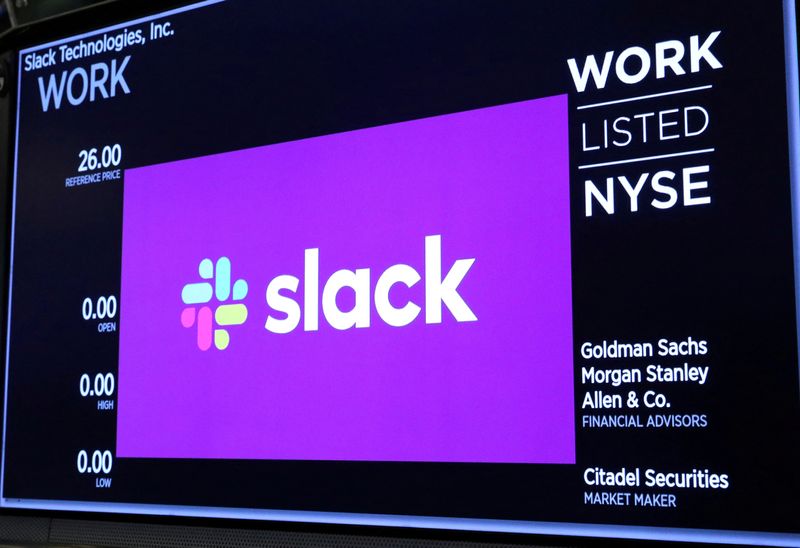By Andrew Chung
(Reuters) -The U.S. Supreme Court on Thursday gave Salesforce (NYSE:CRM) Inc's Slack Technologies (NYSE:WORK) another chance to avoid a lawsuit over the workplace communications software company's 2019 direct listing.
In a 9-0 ruling, the justices threw out a lower court's decision that had let the proposed class action lawsuit filed by shareholder Fiyyaz Pirani proceed under what the Supreme Court concluded was an incorrect reading of a federal investor protection law. A direct listing is an alternative to a traditional initial public offering.
The justices ordered the San Francisco-based 9th U.S. Circuit Court of Appeals to reconsider the case.
Pirani's lawsuit alleged violations of Sections 11 and 12 of a federal law called the Securities Act of 1933. Pirani claimed that the company's registration statement and prospectus for its direct listing contained misstatements about service outages, the credits it promised to pay customers when service was disrupted, and the competition it faced from Teams, Microsoft (NASDAQ:MSFT)'s rival software.
Slack contended the lawsuit must be dismissed because Pirani cannot prove that he bought registered shares that were specified in the company's allegedly misleading registration statement rather than shares that were exempt from registration. The registration statement was filed with the U.S. Securities and Exchange Commission (SEC).
The justices agreed with Slack.
A plaintiff must "plead and prove that he purchased shares traceable to the allegedly defective registration statement," conservative Justice Neil Gorsuch wrote in the ruling.
Salesforce, a major business software maker, purchased Slack for $27.7 billion in 2021.
Slack's view was that Section 11 of the Securities Act, which lets plaintiffs sue for falsities in a registration statement if they bought "such security," refers to registered, not unregistered, shares. Section 12 focuses on untrue statements in a prospectus that accompanies the sale of a security.
In a direct listing, an approach approved by the SEC in 2018, registered shares and the unregistered shares of early investors in a company are made available to the public at the same time. That differs from an IPO, under which newly registered shares are offered to the public while existing shareholders are typically barred from selling their unregistered shares for months.

Slack's direct listing released 118 million shares that were registered under its registration statement and 165 million pre-existing shares that were exempt from registration. When Slack's stock price dropped, Pirani sued.
The San Francisco-based 9th U.S. Circuit Court of Appeals in 2021 rejected Slack's bid to dismiss the case because Pirani cannot prove his shares were registered, saying the argument in the context of a direct listing would "create a loophole large enough to undermine the purpose of Section 11."